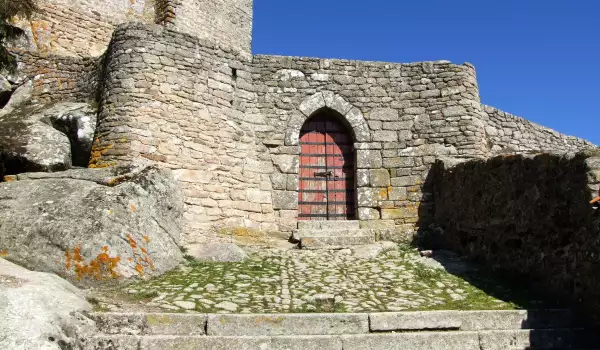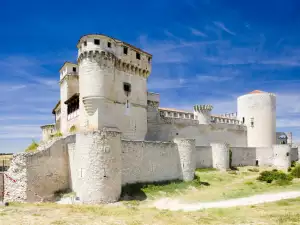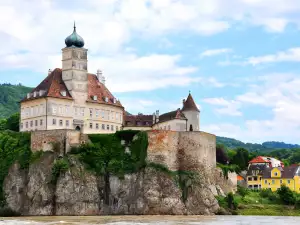Penedono Castle

Penedono is a small and peaceful town in the west central part of Portugal. Perhaps the most interesting sights that you can see there is the small but very authentic appearance of a medieval castle, Castle Penedono.
Penedono castle is located in the Portuguese district of Viseu, hence the capital, Lisbon is only about 4 hours away. The beautiful city of Porto is less than 2 hours away.
The field of Penedono is popular for its picturesque natural beauty. The Portuguese have named this region Douro region and a rocky hill leads to the Castle Penedono where the small village that surrounds it, lies in the south.
The lands of Penedono have been inhabited since the time of the Roman Empire, but the first written records date back to the Reconquista.
In the 11th century Penedono Castle already existed, but this appearance had remained the stronghold of the late 14th century. The later centuries followed a time of progress and decline, and ultimately the state of the 18th century castle was pretty bad.

In the early 20th century Castle Penedono was classified as a national monument by decree, published on June 23rd, 1910. In 1940 a decision was taken to begin the full restoration of Penedono - the structure was strengthened and the facades and towers were restored.
The second-stage repair was undertaken in 1943 and 1953, resulting in the complex which is still well preserved, although there is still much to be desired in terms of interior.
Penedono Castle was built by large gray stone blocks. It also was quite an unusual triangular architectural plan and its four jagged towers are something impressive. Overall Castle Penedono is a typical medieval fort with its high walls, prisons, etc.
The area of the Penedono Castle there are several nice small hotels, which offer excellent service and wonderful views to the palace itself. Among the interesting and fun things you can do in Penedono is tasting the good wines, scenic tour of the local vineyards, etc.
You can also give yourself a tour boat cruise on the Douro river, and to visit the archaeological park of Foz Coa which has been listed as World heritage of UNESCO















